第72章
"But I cannot persuade myself to admire his art.""But," she faltered, "I thought that Bougereau was considered the greatest--one of the greatest--his wonderful flesh tints, the drawing, and colouring""But I think you will see," he told her, "if you think about it, that for all there is _in_ his picture--back of it--a fine hanging, a beautiful vase would have exactly the same value upon your wall.Now, on the other hand, take this picture." He indicated a small canvas to the right of the bathing nymphs, representing a twilight landscape.
"Oh, that one," said Laura."We bought that here in America, in New York.It's by a Western artist.Inever noticed it much, I'm afraid."
"But now look at it," said Corthell."Don't you know that the artist saw something more than trees and a pool and afterglow? He had that feeling of night coming on, as he sat there before his sketching easel on the edge of that little pool.He heard the frogs beginning to pipe, I'm sure, and the touch of the night mist was on his hands.And he was very lonely and even a little sad.In those deep shadows under the trees he put something of himself, the gloom and the sadness that he felt at the moment.And that little pool, still and black and sombre--why, the whole thing is the tragedy of a life full of dark, hidden secrets.And the little pool is a heart.No one can say how deep it is, or what dreadful thing one would find at the bottom, or what drowned hopes or what sunken ambitions.That little pool says one word as plain as if it were whispered in the ear--despair.Oh, yes, I prefer it to the nymphs.""I am very much ashamed," returned Laura, "that I could not see it all before for myself.But I see it now.
It is better, of course.I shall come in here often now and study it.Of all the rooms in our house this is the one I like best.But, I am afraid, it has been more because of the organ than of the pictures."Corthell turned about.
"Oh, the grand, noble organ," he murmured."I envy you this of all your treasures.May I play for you?
1
"I should love to have you," she told him.
He asked permission to lower the lights, and stepping outside the door an instant, pressed the buttons that extinguished all but a very few of them.After he had done this he came back to the organ and detached the self-playing "arrangement" without comment, and seated himself at the console.
Laura lay back in a long chair close at hand.The moment was propitious.The artist's profile silhouetted itself against the shade of a light that burned at the side of the organ, and that gave light to the keyboard.And on this keyboard, full in the reflection, lay his long, slim hands.They were the only things that moved in the room, and the chords and bars of Mendelssohn's "Consolation" seemed, as he played, to flow, not from the instrument, but, like some invisible ether, from his finger-tips themselves.
"You hear," he said to Laura, "the effect of questions and answer in this.The questions are passionate and tumultuous and varied, but the answer is always the same, always calm and soothing and dignified."She answered with a long breath, speaking just above a whisper:
"Oh, yes, yes, I understand."
He finished and turned towards her a moment."Possibly not a very high order of art," he said; "a little too 'easy,' perhaps, like the Bougereau, but 'Consolation'
should appeal very simply and directly, after all.Do you care for Beethoven?""I--I am afraid--" began Laura, but he had continued without waiting for her reply.
"You remember this? The 'Appassionata,' the F minor sonata just the second movement."But when he had finished Laura begged him to continue.
"Please go on," she said."Play anything.You can't tell how I love it.""Here is something I've always liked," he answered, turning back to the keyboard."It is the 'Mephisto Walzer' of Liszt.He has adapted it himself from his own orchestral score, very ingeniously.It is difficult to render on the organ, but I think you can get the idea of it." As he spoke he began playing, his head very slightly moving to the rhythm of the piece.
At the beginning of each new theme, and without interrupting his playing, he offered a word, of explanation:
"Very vivid and arabesque this, don't you think?...
And now this movement; isn't it reckless and capricious, like a woman who hesitates and then takes the leap? Yet there's a certain nobility there, a feeling for ideals.You see it, of course....And all the while this undercurrent of the sensual, and that feline, eager sentiment...and here, I think, is the best part of it, the very essence of passion, the voluptuousness that is a veritable anguish....These long, slow rhythms, tortured, languishing, really dying.It reminds one of 'Phedre '--'Venus toute entiere,' and the rest of it; and Wagner has the same.
You find it again in Isolde's motif continually."Laura was transfixed, all but transported.Here was something better than Gounod and Verdi, something above and beyond the obvious one, two, three, one, two, three of the opera scores as she knew them and played them.
Music she understood with an intuitive quickness; and those prolonged chords of Liszt's, heavy and clogged and cloyed with passion, reached some hitherto untouched string within her heart, and with resistless power twanged it so that the vibration of it shook her entire being, and left her quivering and breathless, the tears in her eyes, her hands clasped till the knuckles whitened.